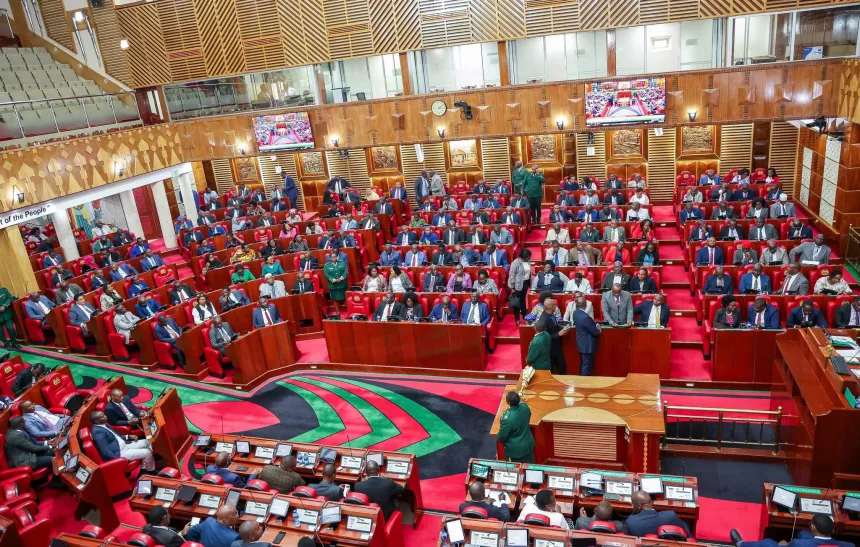The National Assembly has dismissed as fake a document circulating on social media purporting to be the Computer Misuse and Cybercrime (Amendment) Bill, 2024, warning Kenyans against consuming or sharing unverified information attributed to Parliament.
In a statement issued on Wednesday, Clerk of the National Assembly Samuel Njoroge clarified that the alleged Bill and a forged letter on Cabinet vetting were part of a growing wave of misinformation targeting the institution.
“The attention of the National Assembly has been drawn to false information circulating on the internet and social media purporting to represent Bills recently passed by Parliament and a purported letter dated 14th October 2025,” Njoroge said.
He emphasized that the so-called Bill circulating online was not genuine, describing it as a “fake and misleading document” seemingly generated using artificial intelligence. He further explained that only Bills properly published by the Government Printer and listed on official platforms should be treated as authentic.
Njoroge urged the public to rely solely on official sources such as the Parliamentary website (www.parliament.go.ke) and the National Council for Law Reporting (www.kenyalaw.org) for accurate legislative information. Physical copies of official Bills are also available at the Table Office in the main Parliament Buildings and the Government Press.
The circulation of the fake Bill came just days after President William Ruto assented to eight genuine Bills on October 15, including the legitimate Computer Misuse and Cybercrime (Amendment) Bill, 2024, and the Privatisation Bill, 2025.
Njoroge cautioned the public against debating or interpreting laws that have not yet been gazetted, noting that a law only takes effect 14 days after publication in the Kenya Gazette, unless specified otherwise.
He reiterated Parliament’s commitment to transparency and urged citizens to verify all parliamentary documents through official communication channels, warning that the spread of fake documents undermines public confidence in legislative processes.
“The integrity of legislative information is critical to public confidence in Parliament,” Njoroge affirmed.

